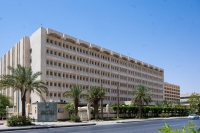
1926 The Founding King Abdulaziz Bin Abdulrahman Al Saud established a single judiciary presidency in the western region of Makkah al-Mukarramah , before the unification of the Kingdom of Saudi Arabia. It is considered the cornerstone for founding the judiciary in Saudi Arabia. 1927 A Royal Decree was issued to establish three grades of courts in Hejaz, namely the Courts of Urgent Matters (summary courts), Major Courts and Affiliate Courts representing general courts, and the Judicial Oversight...
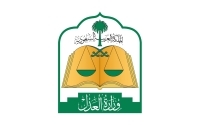
The Case Preparation Center is a facility that provides judicial support services to judicial departments in courts across the Kingdom of Saudi Arabia. It enhances the readiness of case files, improving the quality of judicial outputs and expediting case resolution. The Ministry of Justice inaugurated the center on May 25, 2022. Objectives of the Case Preparation Center The Case Preparation Center aims to improve the method and quality of judicial services, activate and solidify the institution...
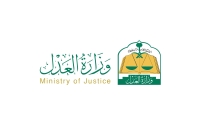
Notarial services in the Kingdom of Saudi Arabia encompass documenting property ownership transfers, company contracts, the acceptance of residential and agricultural grants, acknowledgment-based powers of attorney, and the creation and release of mortgages. They also handle the revocation or withdrawal of powers of attorney by either the principal or the agent, as well as the establishment and release of guarantees and amicable partitioning agreements among adults. Notarial offices are divided...

The Board of Grievances in the Kingdom of Saudi Arabia is divided into three courts: the Supreme Administrative Court, the Administrative Appeal Courts, and the Administrative Courts. The Supreme Administrative Court is competent in reviewing objectives to judgments issued by the Administrative Appeal Courts, while the latter handle cases brought before them by Administrative Courts, and adjudicate upon these cases after hearing the involved parties in accordance with the relevant statutory pro...

The Ministry of Justice in the Kingdom of Saudi Arabia is considered a legislative entity for the Board of Grievances . In general, it is the entity responsible for providing judicial and documentary services, with its primary mission being to achieve justice for all and its responsibility includes resolving disputes. As for the Board of Grievances, its roles are considered more executive and less legislative, mainly: resolving cases related to rights established in civil service, military, and...
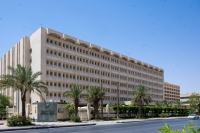
The Model Courts Project is a project aimed at implementing institutional judiciary in the courts of the Kingdom of Saudi Arabia . It was launched by the Ministry of Justice on April 1, 2019, to transition from traditional solutions to address challenges, improve and develop the work environment in courts, and apply a unified standard identity across them. The number of model courts in the Kingdom's provinces reached twenty-six by November 2023. Phases of the Model Courts Project The opera...

The Board of Grievances is an independent administrative judiciary authority, directly affiliated with the King of the Kingdom of Saudi Arabia . It aims to establish justice and effective judicial oversight over administrative actions through cases presented before it, ensuring the proper application of laws and regulations and enabling the aggrieved party to seek redress, thus safeguarding rights, applying legal judgments, and achieving justice while addressing grievances. Establishment of the...
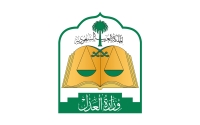
The Scientific Judicial Portal is an interactive digital platform launched by the Ministry of Justice in the Kingdom of Saudi Arabia in 2021. The platform encompasses the largest judicial and legal database in the Kingdom. It provides access for the parties to the judicial process to view all the final commercial rulings issued by first-instance courts, appellate courts, and the Supreme Court, as well as judicial documents, through flexible interactive tools. Importance of the Scientific Judici...

They are courts that have jurisdiction over disputes related to labor contracts and wages, rights, work injuries and compensations, and disputes arising from dismissal. They also monitor labor law penalties and handle complaints of employers and employees in the Kingdom of Saudi Arabia . Judgments issued by labor courts are binding on the parties involved in labor disputes and are enforced through execution courts and relevant authorities. Labor courts are included in the first-instance court...

The Supreme Judicial Council of the Kingdom of Saudi Arabia undertakes several regulatory, administrative, supervisory, and developmental responsibilities in all matters related to the judiciary, its systems, operational mechanisms, and employees. The council oversees all matters related to the courts and their operations, in addition to judges and their appointment, monitoring their work, taking any disciplinary actions against them, and investigation and inspection processes. The Supreme Judi...
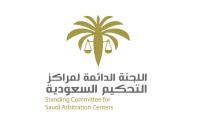
The Standing Committee for Saudi Arbitration Centers is one of the committees under the Federation of Saudi Chambers. It was established in 2021 with the aim of creating a fair and attractive arbitration environment in the Kingdom of Saudi Arabia, promoting and spreading the culture of arbitration according to international standards and criteria, and alleviating the burden on the general judiciary. The committee includes representatives from the Ministry of Justice , the Ministry of Commerce ,...
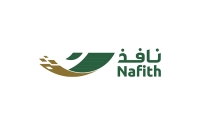
The Nafith Platform is a Saudi initiative launched by the Ministry of Justice in the Kingdom of Saudi Arabia. It aims to preserve executive bonds for individuals and businesses by issuing them electronically through an official platform and linking them to the enforcement courts, ensuring the preservation of all rights for the concerned parties. The platform was launched on April 19, 2020. Beneficiaries of Nafith platform The Nafith Platform enables individuals, banks, and financial insti...